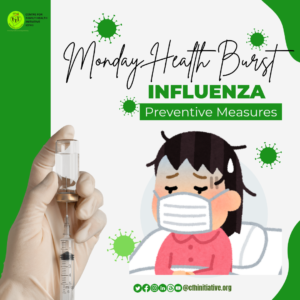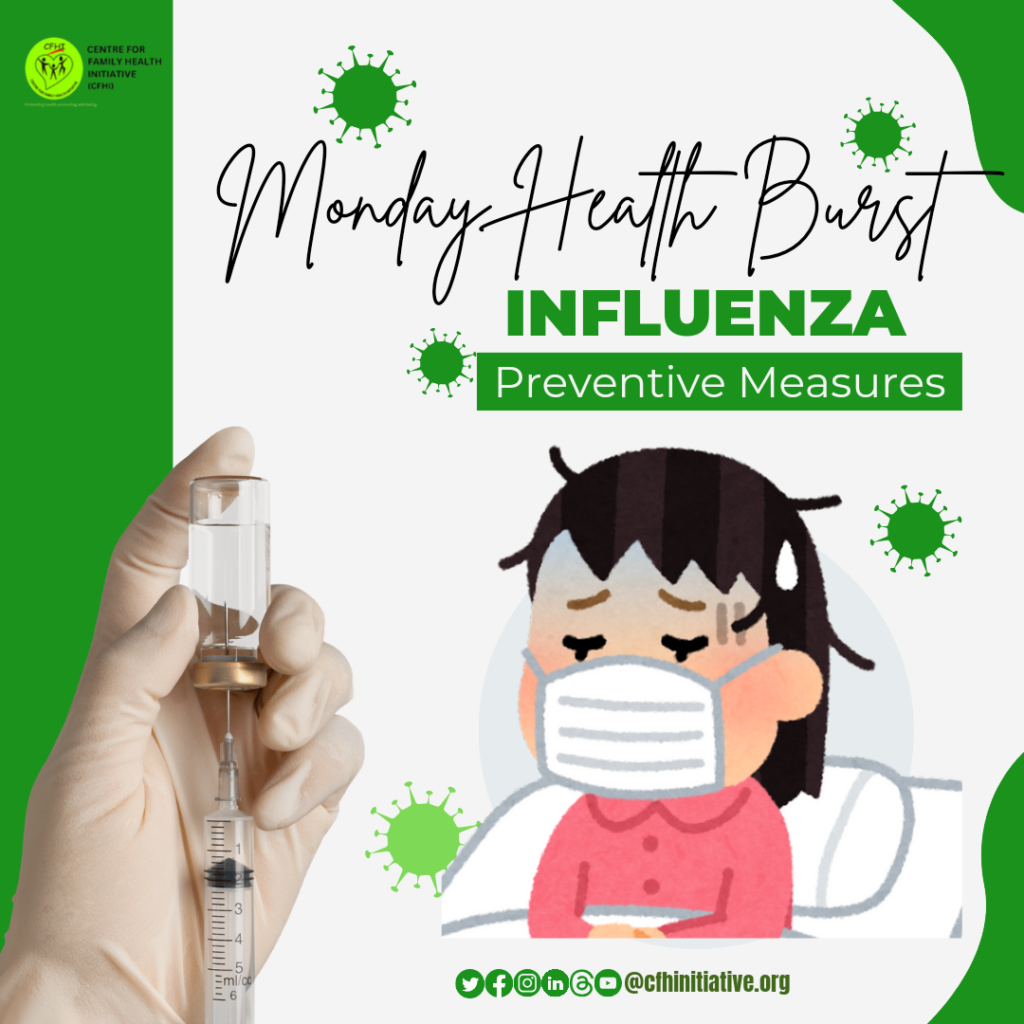According to the World Health Organization (WHO), there are approximately one billion cases of seasonal influenza each year, leading to 3–5 million instances of severe disease. Tragically, this results in 290,000–650,000 respiratory deaths annually. 1
Influenza, or the flu, is a contagious respiratory illness caused by influenza viruses, capable of causing mild to severe illness and, in some cases, even death. Seasonal influenza outbreaks are common worldwide, particularly during colder months. However, there are effective preventive measures available to greatly minimize the risk of contracting and spreading the flu.
Vaccination:
Getting an annual influenza vaccine is the most effective way to prevent the flu and its complications. The vaccine stimulates your immune system to produce antibodies against the virus strains included in the vaccine, providing protection throughout the flu season. It’s important to get vaccinated each year as the circulating flu strains can change.
Hand Hygiene:
Frequent handwashing with soap and water or using alcohol-based hand sanitizers is crucial in preventing the spread of influenza viruses. Viruses can live on surfaces for hours, and touching these surfaces and then touching your face can lead to infection. Make it a habit to wash your hands thoroughly, especially before eating or touching your face.
Respiratory Hygiene:
Cover your mouth and nose with a tissue or your elbow when coughing or sneezing to prevent the spread of respiratory droplets containing the virus. Dispose of tissues immediately and wash your hands afterward. Avoid close contact with people who are sick, and if you are sick, stay home to prevent spreading the virus to others.
Boosting Immunity:
Maintaining a healthy lifestyle can strengthen your immune system and help fight off infections. This includes eating a balanced diet rich in fruits and vegetables, staying hydrated, getting regular exercise, managing stress levels, and getting enough sleep. A healthy immune system is better equipped to defend against influenza viruses.
Avoid Touching Your Face:
Influenza viruses can enter your body through your eyes, nose, or mouth. Avoid touching your face, particularly with unwashed hands, to reduce the risk of infection. If you do need to touch your face, ensure your hands are clean.
High-Risk Individuals:
Certain groups are at higher risk of developing complications from the flu, including young children, pregnant women, older adults, and those with underlying health conditions. It’s particularly important for these individuals to get vaccinated and take extra precautions to avoid exposure to the virus. 2
Preventing influenza requires a combination of personal hygiene practices, vaccination, and healthy lifestyle choices. By adopting these preventive measures, you can significantly reduce the risk of getting infected with the flu and protect both yourself and those around you from this contagious illness.
References
https://www.who.int/news-room/fact-sheets/detail/influenza-(seasonal)
https://www.cdc.gov/flu/prevent/whoshouldvax.htm


